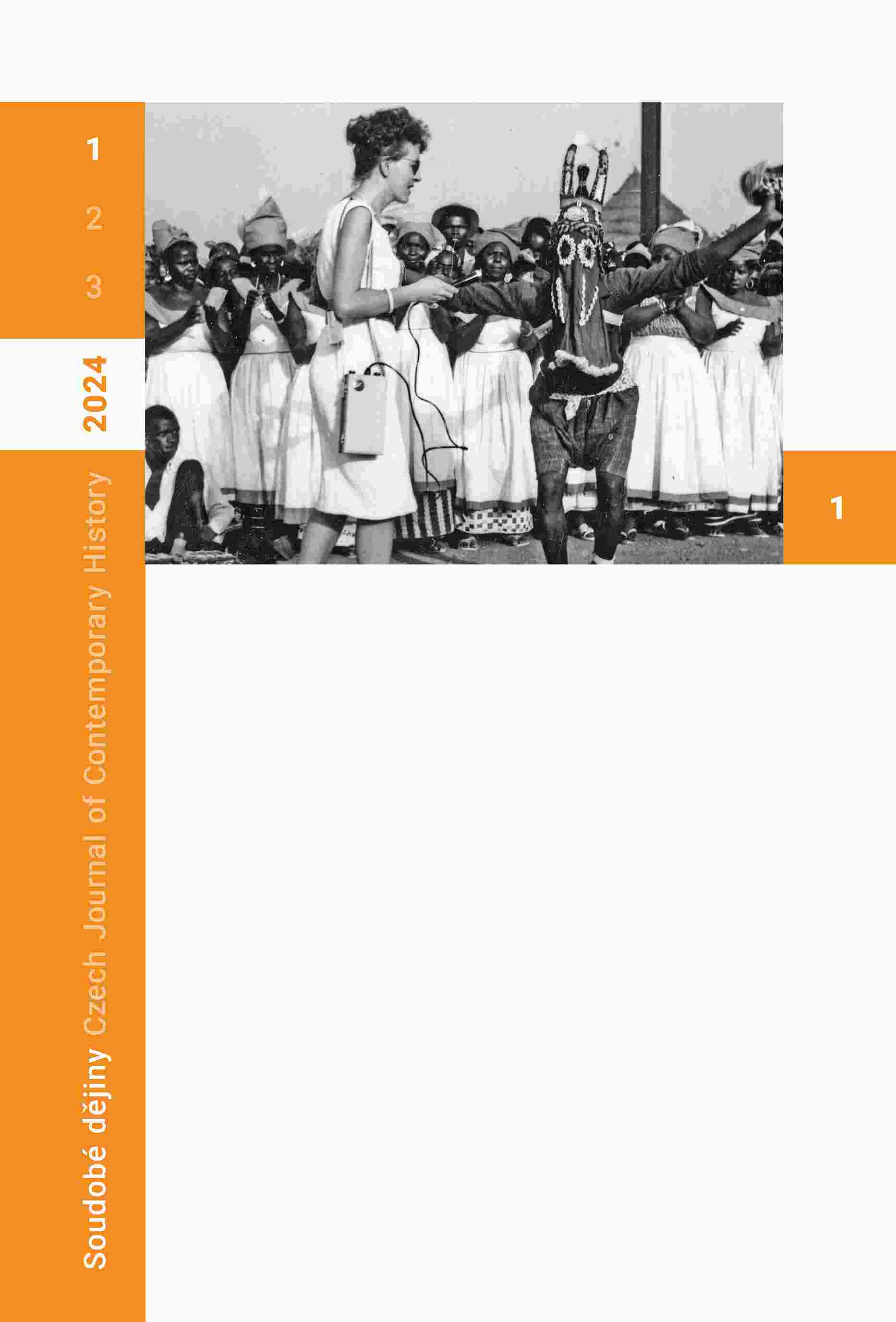Dcera, historička, "špionka" Sheila Fitzpatricková:
Nad vědeckým dílem "jiné" revizionistky a jeho českým ohlasem
Sheila Fitzpatrick, Daughter, Historian and "Spy":
On the Scholarly Work of the "Other" Revisionist and Its Czech Reception
Author(s): Jan AdamecSubject(s): History, Cultural history, Political history, Social history, Interwar Period (1920 - 1939), Post-War period (1950 - 1989), Transformation Period (1990 - 2010), Present Times (2010 - today), History of Communism, Historical revisionism, Cold-War History
Published by: AV ČR - Akademie věd České republiky - Ústav pro soudobé dějiny
Keywords: Sheila Fitzpatrick;Soviet studies;historical revisionism;totalitarianism;Soviet Union;communism;Stalinism;everyday life;Everyday Stalinism;Czech historiography
Summary/Abstract: This text is directly related to Jan Adamec’s essay "Dcera, historička, „špionka” Sheila Fitzpatricková: Nad vzpomínkami „jiné” revizionistky" [Daughter, Historian, “Spy” Sheila Fitzpatrick: On the Memoirs of an “Other” Revisionist] published in this journal in 2023 (Vol. 30, No. 1, pp. 137–166). In this sequel, the author shifts away from recounting the life of Australian historian Sheila Fitzpatrick (born 1941), to focus on her scholarly work from the early 1970s, when she gradually became firmly established in the American academic milieu as a respected expert on the interwar history of the Soviet Union and Stalinism. Adamec guides the reader through a chronology of her numerous works, with an emphasis on the seminal monographs, from her published dissertation, "The Commissariat of Enlightenment" (1970), and her most famous work, "Everyday Stalinism: Ordinary Life in Extraordinary Times" (1999), to her to date most recent book, "The Shortest History of the Soviet Union" (2022), and presents the central themes and most important findings of her research. At the same time, he traces Fitzpatrick’s position in the dynamic context of Soviet studies and scholarship on Stalinism, demonstrates her growing influence on younger generations of historians, and notes the scholarly reviews of her work. He pays particular attention to her pioneering role in constituting and promoting revisionist perspectives in the Western historiography of the Soviet Union in the 1970s and 1980s, when, despite initial scepticism or rejection, they became part of the academic mainstream. He seeks to capture her unorthodox position as an “other”, “moderate” revisionist who, while primarily focusing on the everyday and social history of Soviet society, did not underestimate the essential importance of power hierarchies and authoritarian politics emanating from the centre. Thus, in the disputes between revisionism and totalitarianism, Fitzpatrick often takes less clear-cut positions than most adherents of the former. In the last part of the text, the author traces the reception of Fitzpatrick’s work in Czech historiography since the early 1990s, a breakthrough brought about by the Czech translations of the edited volumes "Beyond the Totalitarianism" (published in 2012) and "Everyday Stalinism" (in 2018) and shows that in recent years the Australian historian has become a relatively widely quoted authority in the Czech scholarly milieu, mostly accepted by revisionist critics and also used as a shield in local polemics about the nature of Czechoslovak normalization.
Journal: Soudobé Dějiny
- Issue Year: XXXI/2024
- Issue No: 1
- Page Range: 193-241
- Page Count: 49
- Language: Czech

